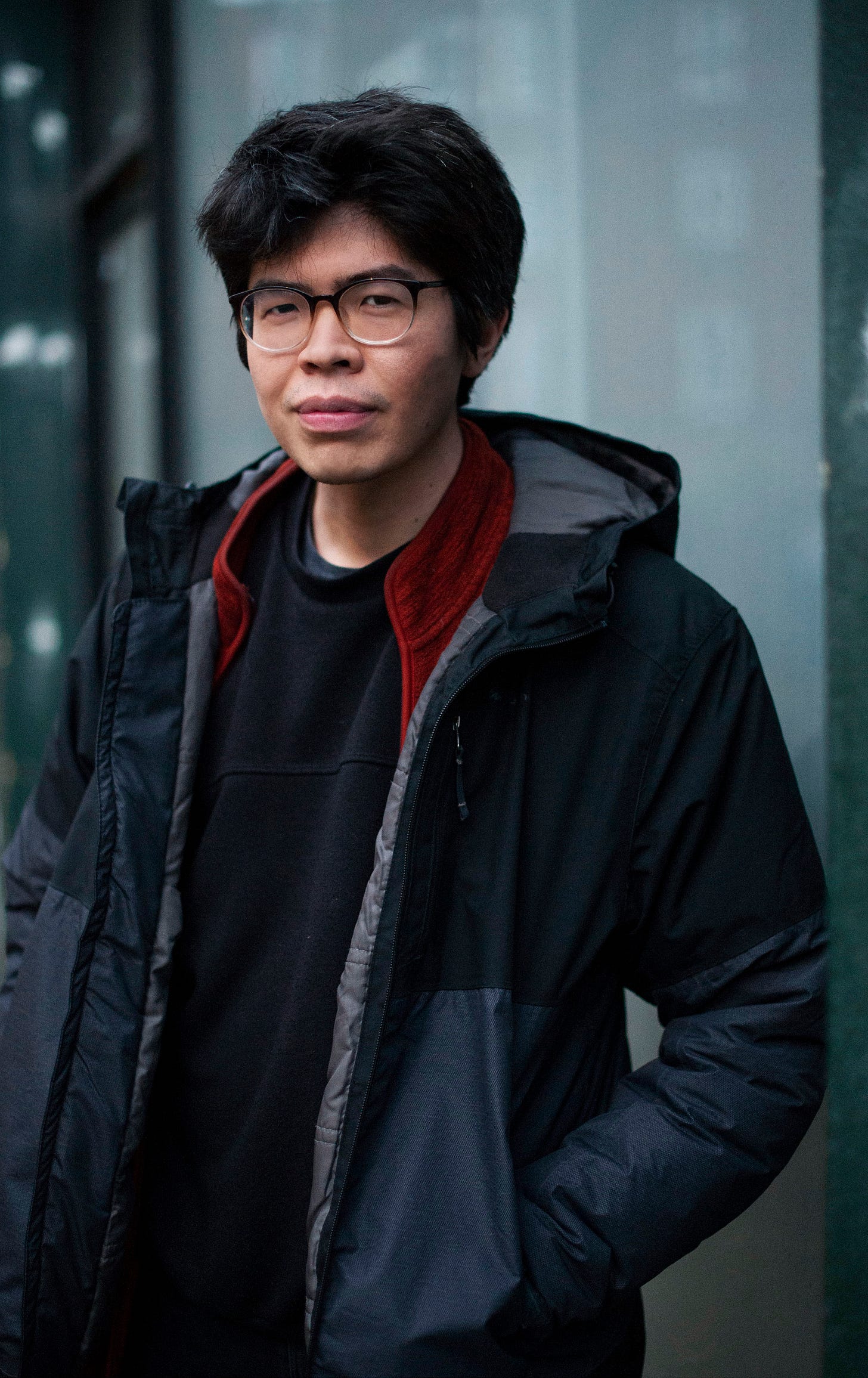Will Harris: “There's a violent desire for wholeness”
The writer on the nuances of identity and why he's done with boxes

Hi, welcome back to Mixed Messages! This week, I speak to writer Will Harris, the author of works including Mixed-Race Superman and his latest poetry collection, RENDANG. Will is of Indonesian and White British heritage, and it was fascinating to talk to him about how his Southeast Asian influences form his sense of identity. This newsletter aims to speak to people from all backgrounds, not just the classic stereotype of a mixed-race person, so do read on for Will’s important thoughts.
How do you define your ethnicity?
I refer to myself as of Chinese Indonesian and British heritage. We have a tendency to simplify how we define, so for a while I referred to myself as Anglo-Indonesian; Anglo in terms of anglophone, and Indonesian because my mum has an Indonesian passport. But my mum is Chinese Indonesian, so Anglo-Indonesian isn’t specific to her experience. Specificity is important, or as Audre Lorde puts it, “self definition is the core of power.”
I used to call myself mixed-race as a way of being evasive and to avoid being pinned down. People would ask me where I was from as a way of asking who I was, but I didn’t know the answer. Saying I was mixed-race was my way of shrugging off those questions and the shame many East and Southeast Asian men feel about being East or Southeast Asian.
But mixed-race is too vague. I’m uncomfortable making it into a special form of identity as opposed to something which is an umbrella term for such a vast array of identities. The title of Mixed-Race Superman was partly a provocation to draw attention to the ridiculousness or impossibility of the term.
I often feel disconnected from my Indian heritage because I don’t partake in typical aspects of the culture or speak Punjabi - have you had similar experiences?
It’s important to detach those ways of forming a culture, like language, media and food, from the experience of it. My mum moved to England in her 20s and while she’d sometimes speak Bahasa Indonesia, she never passed her language on to me - there were a lot of scare stories about bilingualism going around at the time. She worked, so often it was my dad doing the cooking. I feel a strange sense of being cut off from my Indonesian identity, but it also being the only identity I have.
When I do go to Indonesia, I feel a connection. I see my mum’s gestures and mannerisms of speech in their broader cultural context, as well as the other indefinable things we take for granted.
You speak about the desire to be affirmed by either of your cultures in Mixed-Race Superman - is that still something you feel?
The journey of writing the book made me realise that maybe I don’t need to be affirmed by either of those monolithic ideas of Britishness or Indonesianness, which are artificially and historically constructed. Often, the experience of growing up between cultures is that you feel incomplete or like you’re missing out on a sense of wholeness or being at peace with your identity. Part of my writing process was trying to think how to live without that desire for affirmation.
Has your sense of identity felt like a journey?
I think journey is a nice way to put it, rather than something that’s fixed. Conservative critics may aim to put people into boxes, but few marginalised people actually feel that way. Their identity changes and grows alongside them, it’s not a reductive, single thing.
There are so many approaches to being mixed; the personal, the anecdotal, the historical and the philosophical. I’m interested in the latter, what it means to be mixed and what it says about you, how it changes your relationship to culture when you don’t have a clear sense of self.
Donna Haraway, a primatologist and feminist scholar, writes in one of her essays, “one is too few, but two are too many.” The dualisms of self, like nature and nurture, Black and white, almost depend on each other, but that means you can’t have one without the other. That feels important to reference with the mixed experience; it’s a place of contradiction. You can’t be two or more things at the same time.
How would you describe your mixed experience in one word?
Lack. In Mixed-Race Superman, I talk about how mixedness exists in this impossible space. You become this shifting presence defined by absence at your core. I don’t have a clear underlying sense of who I am which is linked to my features and my heritage, but that’s not necessarily a bad thing. I want to overcome this violent desire for wholeness.
Next week, I’ll be talking to Solon, Creative Manager at mixedracefaces, a project capturing what it looks like to be mixed-race today. Subscribe to get Mixed Messages in your inbox next Monday!
Mixed Messages is a weekly exploration of the mixed-race experience, from me, Isabella Silvers. My mom is Punjabi Indian (by way of East Africa) and my dad is White British, but finding my place between these two cultures hasn’t always been easy. That’s why I started Mixed Messages, where each week I’ll speak to a prominent mixed voice to delve into what it really feels like to be mixed.





